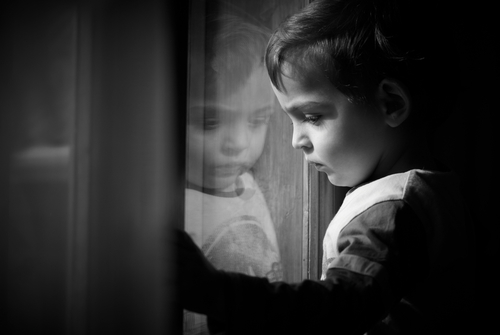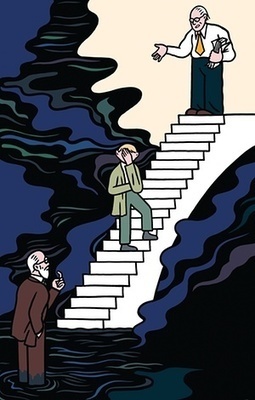How Insecure Attachment Creates Fertile Ground for Addictions
See on Scoop.it - Clinical Psychology and Psychotherapy
“…We are wired to need secure attachment, not just for our survival but also for optimal brain development.
Here is what it looks like when secure attachment doesn’t happen: Baby is upset, turns to caregiver for comfort and connection; instead, baby gets ignored, is left alone, or worse, is abused for having needs. These types of reactions from caregiver will have an enormous dysregulating effect on baby. Most likely baby will protest (i.e., cry) or give some kind of distress signal. If this is ineffective, eventually baby will stop seeking care and comfort from their caregiver; instead, baby withdraws and starts finding other ways to self-regulate and self-soothe.
This is where I believe fertile grounds for addiction start to develop. This baby is wired to not turn to humans for care and comfort; instead, they will seek alternatives to help them self-regulate. Addictions to drugs, food, rituals around food, over- or under-eating, can all become compensatory mechanisms for replacing the regulating effect a secure attachment would have provided. I have yet to meet someone who struggles with addiction who doesn’t also have some kind of attachment trauma.
Viewing clinical issues through the lens of attachment theory has helped me enormously in my work with clients. Problems and dysfunction make perfect sense when viewed through this lens. Take my client Becky, for instance. (I’ve changed her name for confidentiality purposes.) Becky had a problem with drinking. She turned to drink whenever she felt anxious, stressed or overwhelmed. In her words: “It helps me numb out, and suddenly those things that seemed so big and overwhelming are gone.” Becky turns to alcohol to help herself regulate. She didn’t have caregivers who were really there for her or very responsive to her needs growing up. In fact, her father was an alcoholic and her mother suffered from obsessive compulsive disorder. This background provided fertile grounds for an addiction to develop. I believe that because Becky had not experienced the regulatory effect that secure attachment would have provided, she had to get creative. She had to find a substitute to help her regulate; alcohol became that substitute…”
See on psychalive.org
Therapy wars: the revenge of Freud | Oliver Burkeman
See on Scoop.it - Clinical Psychology and Psychotherapy
The long read: Cheap and effective, CBT became the dominant form of therapy, consigning Freud to psychology’s dingy basement. But new studies have cast doubt on its supremacy – and shown dramatic results for psychoanalysis.
The approach of a therapist is secondary..for therapy to be successful it takes a compassionate and dedicated therapist and a patient who is committed to change..
See on theguardian.com


